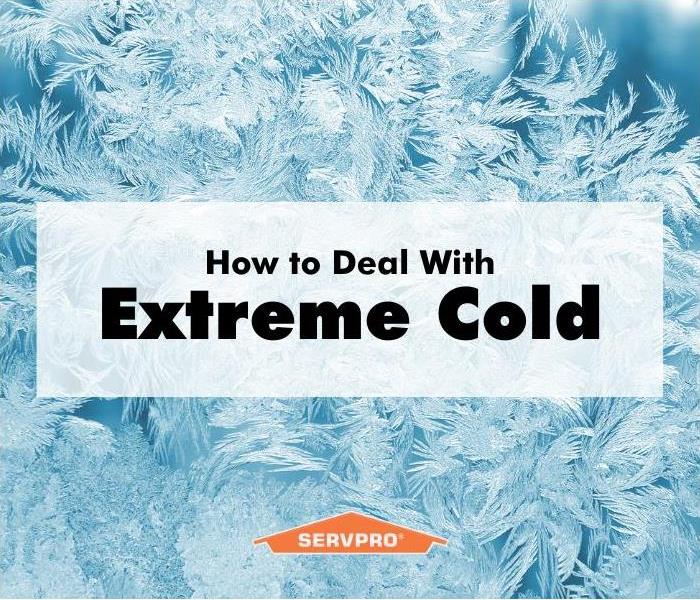How to Deal With Extreme Cold
2/16/2021 (Permalink)
With our area experiencing extreme cold with temperatures near zero degrees, it’s vital to protect yourself from frigid weather.
While most of us try to stay inside as often as possible when there’s below-freezing temperatures, there are times where we’re forced to go outside. If you do find yourself having to go outside into freezing temperatures, follow these steps in order to stay warm.
- Wear Loose Layers
Dressing appropriately during extreme cold is the most important step you can take. Wearing loose layers of clothing is smart because what keeps you warm is the insulated air that circulates between each layer. Avoid tight clothing, as it reduces blood circulation and cuts off flow to the extremities.
- Protect Ears, Face, Hands and Feet
These are the most important parts of the body to cover, as they are often the most exposed. Hats, gloves, snow boots, extra pairs of socks, and ski masks/face coverings are all vital.
- Keep Moving
Body circulation is the key to warmth. You can wear plenty of layers, but if you’re not moving then you will still be cold. Stay in constant motion to keep your blood pumping.
- Drink Warm Fluids and Eat
Soup, coffee, hot tea, hot chocolate are great choices on cold days. Eating extra healthy fats during the winter can increase metabolism, which in turn heats the body, according to Columbia Health.
- Check Road Safety
Freezing temperatures can cause dangerous road conditions. If you have to drive somewhere, be sure to check the local news or MoDOT’s website before you go out.
- Be Aware of Signs of Hypothermia
Prolonged exposure to the cold can result in hypothermia, or abnormally low body temperature. Hypothermia can occur when your body temperature falls below 95 degrees Fahrenheit, so it’s important to monitor yourself and be aware when your body is cold. Check the CDC's guide for recognizing hypothermia to help understand if you or someone else is experiencing this affliction.



 24/7 Emergency Service
24/7 Emergency Service
